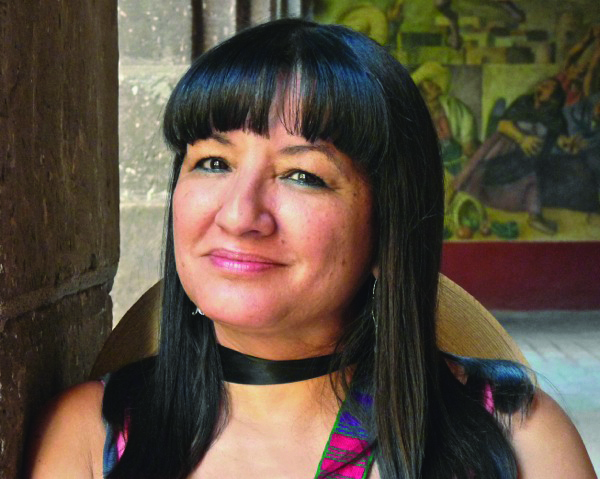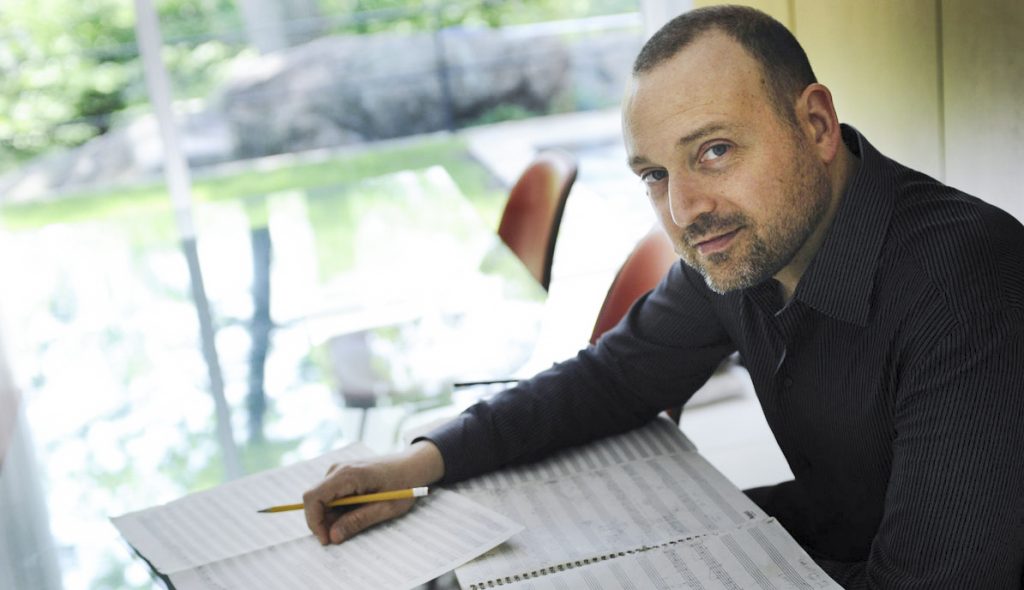Before The House on Mango Street: The Opera, Sandra Cisneros had never before written a libretto, and considered working with a librettist to pen the opera version of her beloved 1984 novel.
“I didn’t think I could do it,” Cisneros said. “Then another librettist, who’s a poet, said, ‘You’re a poet, aren’t you?’ ”
Cisneros, who described herself as a poet who also writes fiction, replied that she was. The librettist told her that because she was a poet, she could write libretto. With that, she got to work alongside composer Derek Bermel to create The House on Mango Street: The Opera, of which Chautauqua Opera Company will produce a workshop reading at 4 p.m. today in Norton Hall. The House on Mango Street takes place in Chicago in the 1980s and tells the coming of age story of 12-year-old Esperanza Cordero as she navigates her Chicano culture, a new neighborhood and becoming a young woman — all within the span of a year.

General and Artistic Director of Chautauqua Opera Steven Osgood will conduct for the workshop, and he holds the baton in his very qualified hands, as he has interacted with opera workshops for the past 30 years.
“I have a ton of experience doing this,” he said. “It’s been the core, in many ways, of my career (working) on new pieces with composers and librettists.”
Osgood lived in New York City where he produced many contemporary plays, but with opera entering a new era and composers creating new pieces, someone had to conduct them. The first workshop opera that he conducted premiered in the mid-1990s. From there, Santa Fe Opera showed interest in his work, and he eventually joined their music staff.
When he conducts standard repertoire, such as Puccini’s Tosca, which the Chautauqua Opera produced this summer, his job is to unite everyone’s vision for the piece, as people normally have interacted with those operas before and even performed in them for other companies. When it comes to new opera workshops, however, his approach must be different.
“For the performers, you can fairly safely assume that nobody’s ever done (the opera) before. So the building process of the piece is about discovering what that unifying style is,” he said.
The composer and librettist play essential roles in helping Osgood and the cast discover the heart of the piece. Luckily for them, Cisneros, Bermel, and dramaturg Cori Ellison, are at rehearsals with the rest of the crew, ready to answer, or find answers to any questions.
The composer has helped Osgood understand both Bermel’s musical style and the style of the piece.

“That code, that language, the musical metabolism of a composer, the way a librettist uses text, is always specific and unique to them,” Osgood said. “Building that relationship, discovering it is one of the — I keep saying this to colleagues and to people and to cast members — it is the thing that I love to do the most. Period. Hands down. Period.”
For the love Osgood has for the process, Cisneros and Bermel have also enjoyed creating the piece.
“Derek and I work very closely, so we don’t know boundaries,” Cisneros said. “When the music’s not finding the mood, I’ll tell him, and then he’s always welcome to add lines. And he’s a very good writer. I can’t take credit for the libretto without Derek’s name because he and I collaborate so much.”
When Bermel first approached Cisneros with his “Mango Suite” — a 50-minute piece of music, dance and singing — she gained a new perspective on The House of Mango Street, a book she’s spent almost 40 years with. Chautauqua premiered “Mango Suite” in 2017 as an inter-arts collaboration, the same summer that Cisneros’ book was featured by both the Chautauqua Literary and Scientific Circle and CLSC Young Readers programs.
“I met (Bermel) through his music first. He wrote and sent me some music, and I just felt this breadth and depth of emotion,” Cisneros said. “I could imagine it being in my book, and I said, ‘Oh my god!’ I missed out on this whole depth that (we have) if we added music.”
With Bermel’s music attached to Cisneros’ words, the two add a fresh view on characters like Esperanza and her family and neighbors. Even though Cisneros appreciates the importance of the music, she hopes the lyrics don’t get lost.
“I hope we’ll be able to hear the words because if people are singing them, and we can’t hear them … I’m going to be very disappointed, because I want the text to be heard,” she said.
But then she countered her own thought, saying that perhaps Bermel might feel the opposite: that the words are distracting from the music in an unappealing way. Part of the objective of this workshop is to see what works in the opera and what still needs tweaking and improvement.
For this workshop, 2022 Guest Artist and mezzo-soprano Kelly Guerra portrays the lead, Esperanza. Guerra’s first encounter with The House on Mango Street came after she was cast.
“It was really amazing to read that book when I got cast,” Guerra said. “I really wish I had known about the book or decided to read the book when I was in school because I was one of the only Latino kids in a very white school. So I felt really heard, and it was such a joy to get to know that book.”
While Guerra did connect with Esperanza through their shared Latinx heritage, Esperanza reminded her of what it’s like to be a teenager.
“She’s very much the loner kid that just doesn’t feel that she really understands her surroundings or gets along with everybody and (she) just wants to be understood,” she said.
The story of Esperanza and the characters in The House on Mango Street draws people in even now, but Cisneros wishes that some of the challenges she wrote about in the early 1980s would no longer apply.
“I wish it was dated, because that would mean we resolved all those issues that are the issues of misogyny and racism and issues of low-income housing being frightening for the people that live there and violence … and sexual abuse,” she said. “I wish that it was dated, but unfortunately, it’s not. It’s very contemporary, and these issues are still happening in the very same streets that I wrote about.”
Editor’s note: This event did not take place as scheduled, as many Institution events were canceled following an incident in the Amphitheater on Friday, August 12.




